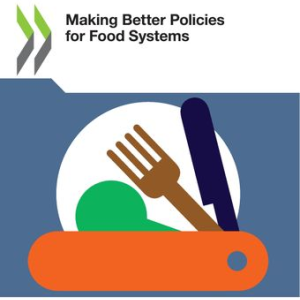
This report from the Organisation for Economic Cooperation and Development (OECD) examines three questions: how have food systems performed to date and what role did policies play? How can policy makers design coherent policies across the triple challenge of providing food security, livelihoods and environmental protection? How should policymakers treat the facts, interests, and values that often complicate the task of achieving better policies? It also presents case studies on the seed sector, ruminant livestock and processed foods.
Chapter 3 of the report may be of particular interest to readers who are interested in Table’s food dialogue processes. It makes recommendations on how policymakers can manage the frictions that arise from disagreements around facts, interests and values in the food system. Its key messages are:
- If disagreements are primarily about facts, they can be addressed by either producing further scientific evidence or better communicating existing evidence.
- If disagreements are about diverging interests, policymaking may require some level of bargaining between interest groups. If one interest group has greater control over the decision-making process than others, policymaking processes should be designed so that they can be accessed openly and equitably.
- If disagreements are over values, i.e. differing beliefs over what is good for society, it may be possible to identify actions that can be supported by people even if they hold different values. Where this is not possible, deliberative processes can support stakeholders in discussing why certain values are important to them and potentially reaching compromises.
Read the full report, Making Better Policies for Food Systems, here (overview page) or here (full report). See also the Table explainer What can be done to shift eating patterns in healthier, more sustainable directions?












Post a new comment »